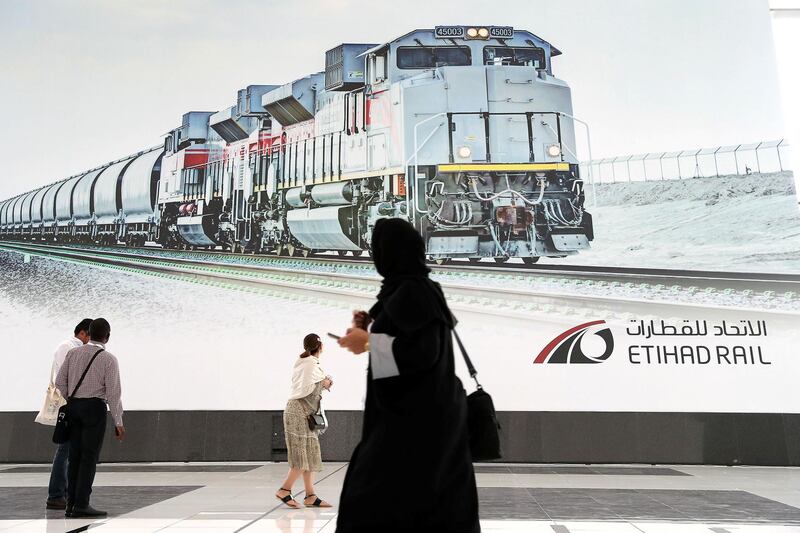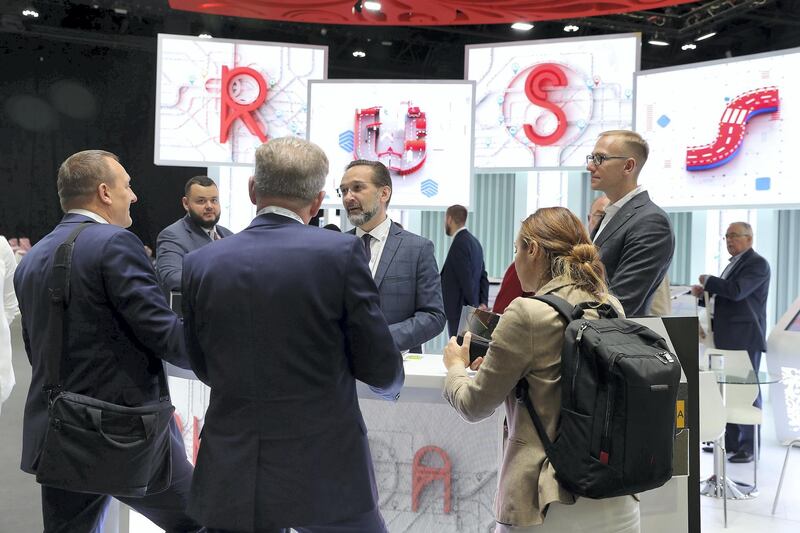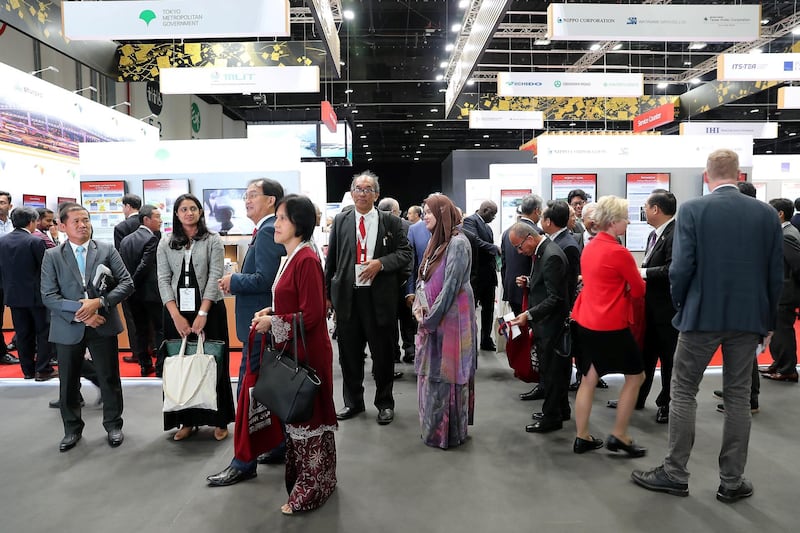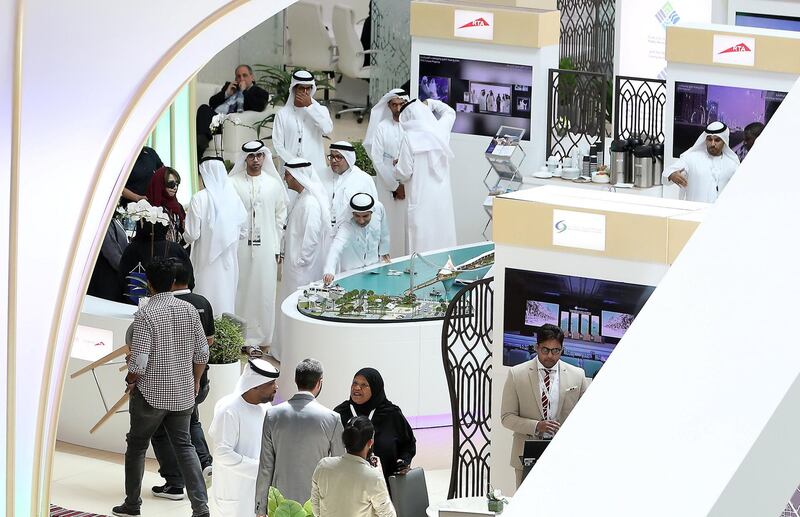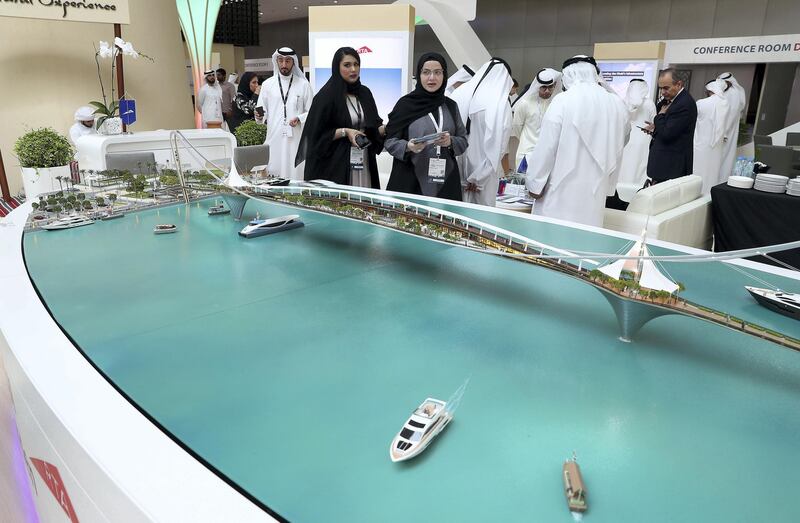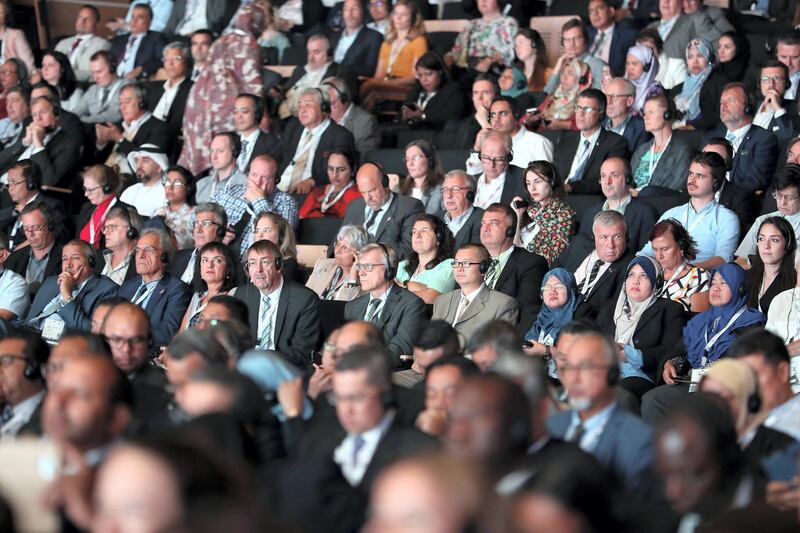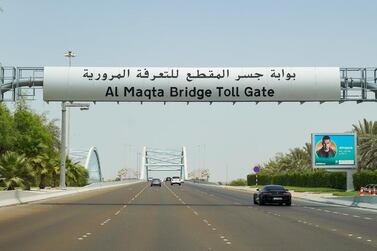Road tolls being introduced in Abu Dhabi next week will boost safety and improve traffic flow, said experts on the opening day of a global transport conference being held in the capital.
Motorists entering Abu Dhabi island will face charges from October 15 as part of efforts to reduce congestion and encourage drivers to use public transport.
Four toll gates will be placed at the Sheikh Zayed, Maqta, Mussaffah and Sheikh Khalifa bridges, with drivers being charged Dh4 during peak periods and Dh2 during off-peak times every time they pass through.
"The tolls will help police to enhance road safety and management," said Maj Ahmad Al Shamsi of Abu Dhabi Police at the World Road Congress on Sunday.
“Every road faces challenges but this technology has been invested in and we will soon see that it is effective.”
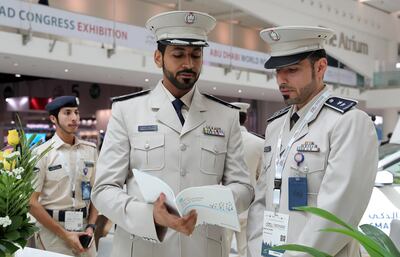
Speeding was also high on the agenda of the congress, where there was a clear message that drivers need to slow down and avoid distractions.
The future of transport was under the spotlight with a focus on sustainable and autonomous vehicles.
More than 3,000 delegates from 100 countries are expected to take part in the congress this week at the Abu Dhabi National Exhibition Centre.
The event, which takes place every four years, was last held in South Korea in 2015.
Tamas Bartal, chief executive of Hungarian company National Toll Payment Services, predicted motorists would be the big winners of the new road tolls.
‘It’s good for everyone because governments can keep the prices low and still keep the traffic flowing smoothly,” he said.
“Money can then be invested to make the roads even safer for motorists.”
Dr Bartal's company is state-owned and generates $1.2 billion (Dh4.4bn) a year.
“Drivers like tolls because it allows them to save time and they can be cost effective if governments keep the prices low,” he said.
Yet safety experts still face an uphill task if driving habits do not change.
"The biggest challenges are speeding and drivers being distracted," said Brent Kulp from American firm Traffix Devices, who worked closely with companies in the UAE to distribute devices to prevent further accidents.
Among his company's innovations were portable rumble strips and a $25,000 attenuator, which is mandatory at "60 to 70 per cent" of all construction sites in the UAE.
The device acts as a cushion to absorb the impact of crashes, collapsing on itself to reduce the damage to both structures and individuals.
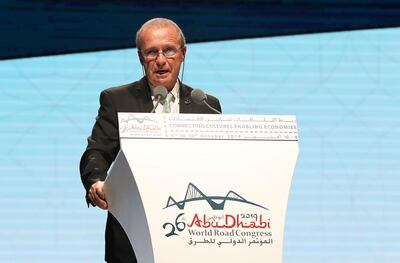
“The truth is a lot of companies won’t spend the money on the proper safety equipment unless the government tells them it is mandatory,” he said.
In the past year alone, there have been more than 80 accidents in the UAE involving people crashing into attenuators positioned at the rear end of vehicles that are commonly struck from behind, such as construction and maintenance lorries.
Mr Kulp said more than 100 lives were saved because of the crash cushions.
Without the attenuators, he said the likelihood was that vehicles would have been forced underneath the lorries at high speed, resulting in dire consequences for the occupants of the vehicles.
World Road Association president Claude Van Rooten praised the UAE’s roads infrastructure in his opening address.
“Roads and streets are the backbone of many countries, so we can’t help but admire what the UAE has achieved,” he said.
“We can only applaud the country’s achievements in building, operating and maintaining a network that is remarkable for a country of this size.”
Mr Van Rooten also said economics and sustainability were the two biggest single issues the sector faces today.
“The world of transport is changing quickly with electric, autonomous and sustainable transport high on the agenda,” said Mr Van Wooten.
“In recent years the association has made strong efforts to develop resources and ensure road services are sustainable and match social concerns.”
